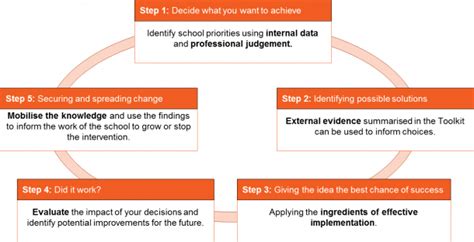Navigating the complexities of college life can be daunting, but with the right resources, you can optimize your experience and excel in your academic and personal pursuits. This comprehensive guide compiles an arsenal of helpful tools to equip you on your college journey.

Academic Support
- Online Learning Platforms: Platforms like Coursera, edX, and Udemy offer a vast collection of video lectures, readings, quizzes, and exams from top universities worldwide.
- Tutoring Services: Seek guidance from experienced tutors who can provide personalized assistance with challenging subjects. Many colleges and universities offer free or low-cost tutoring services.
- Writing Centers: Enhance your writing skills with the help of writing center staff. They offer critiques, proofreading, and workshops to improve writing proficiency.
- Learning Labs: Utilize on-campus learning labs equipped with computers, software, and other resources to enhance your study experience.
- Research Databases: Access vast collections of scholarly journals, articles, e-books, and other resources essential for research and academic assignments.
Financial Aid
- Scholarships and Grants: Explore databases and online platforms such as Fastweb and CollegeBoard to discover scholarship and grant opportunities tailored to your interests, abilities, and background.
- Student Loans: Understand the different types of student loans available, including federal and private loans. Research interest rates, repayment options, and eligibility criteria thoroughly.
- Work-Study Programs: Participate in work-study programs on campus to earn while gaining valuable experience.
- Financial Planning Services: Seek advice from financial aid counselors who can assist with budgeting, debt management, and other financial matters.
- Emergency Assistance Programs: Access resources for temporary assistance in times of unexpected financial difficulty.
Career Development
- Career Counseling Centers: Connect with career counselors who provide resume reviews, mock interviews, and guidance on job search strategies.
- Internship Opportunities: Engage in internships to gain hands-on experience, build your professional network, and explore potential career paths.
- Online Job Boards: Utilize online platforms like LinkedIn, Indeed, and Monster to find job openings and connect with employers.
- Alumni Networks: Tap into the power of alumni networks to learn about industry trends, find mentors, and access exclusive job opportunities.
- Career Fairs: Attend career fairs on campus to meet with potential employers, learn about job openings, and network with industry professionals.
Personal Well-being
- Counseling Services: Access confidential and professional counseling services to address mental health concerns, relationship issues, and other personal challenges.
- Health Services: Utilize campus health centers for preventive care, treatment of minor illnesses and injuries, and access to mental health services.
- Wellness Programs: Engage in campus wellness programs that offer stress management techniques, fitness classes, and healthy eating initiatives.
- Recreational Activities: Participate in clubs, sports teams, and other recreational activities to promote physical and emotional well-being.
- Peer Support Groups: Connect with peers who share similar experiences, challenges, and goals to foster a sense of community and support.
Campus Life
- Student Organizations: Join student organizations that align with your interests, hobbies, and passions. Engage in extracurricular activities to expand your social circle, develop leadership skills, and explore new opportunities.
- Residential Life: Build a sense of belonging and create lasting memories by living on campus in dormitories or other university-provided housing.
- Campus Events: Attend campus events, including lectures, concerts, sporting events, and social activities, to enrich your college experience.
- Student Government: Participate in student government to represent the student body, advocate for student rights, and improve campus life.
- University Recreation Centers: Utilize university recreation centers to access fitness equipment, swimming pools, group fitness classes, and other recreational facilities.
Effective Strategies for College Success
- Set Realistic Goals: Break down large tasks into smaller, manageable chunks to avoid feeling overwhelmed.
- Time Management: Utilize time management tools, such as planners, to-do lists, and calendar apps, to stay organized and on track.
- Active Learning: Engage in active learning techniques, such as note-taking, flashcards, and study groups, to enhance retention and comprehension.
- Seek Support: Don’t hesitate to reach out to professors, TAs, or peers for assistance when needed. Asking for help is a sign of strength, not weakness.
- Maintain a Positive Mindset: Cultivate a positive attitude and a growth mindset. Believe in your abilities and celebrate your successes along the way.
Tips and Tricks for Enhancing Your College Experience
- Utilize Campus Services: Take advantage of the many resources and services available on campus, including libraries, tutoring centers, and health clinics.
- Build a Support System: Establish a network of family, friends, peers, and mentors who can provide encouragement and support throughout your college journey.
- Explore Research Opportunities: Consider participating in faculty-led research projects to gain valuable experience, develop critical thinking skills, and enhance your resume.
- Network with Professionals: Attend industry events, connect with alumni, and seek opportunities to meet potential employers and mentors.
- Prioritize Self-Care: Make time for activities that promote your physical, mental, and emotional well-being. This can include exercise, meditation, or spending time with loved ones.
Common Mistakes to Avoid
- Procrastination: Avoid putting off tasks and assignments until the last minute. Procrastination leads to stress, lower grades, and missed opportunities.
- Academic Dishonesty: Maintain academic integrity by avoiding plagiarism, cheating, or any other form of academic misconduct.
- Financial Overextension: Manage your finances carefully and avoid taking on excessive debt. Remember that student loans need to be repaid.
- Isolation: Make an effort to connect with peers and get involved in campus activities. Isolation can hinder your social and academic progress.
- Burnout: Prevent burnout by setting boundaries, prioritizing self-care, and seeking support when needed. College life can be demanding, but it’s important to maintain a healthy balance.
